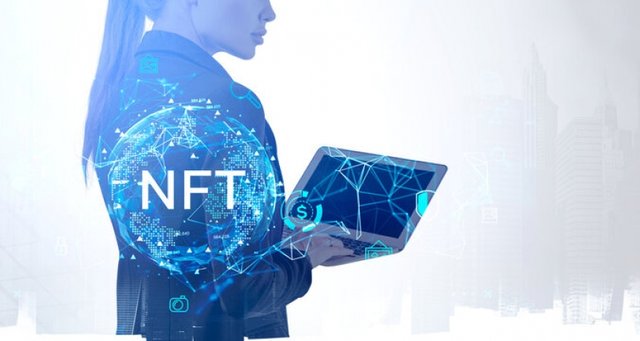Art in the Digital Age: NFT Development Company Perspectives

The intersection of art and technology has given rise to new and innovative forms of expression. One such phenomenon that has taken the art world by storm is the advent of Non-Fungible Tokens. NFTs have revolutionized the way we perceive, create, and trade art, bringing about a paradigm shift in the art industry. In this blog, we will delve into the perspectives of NFT development companies, exploring how they contribute to the transformation of art in the digital era.
Understanding NFTs:
NFTs are unique digital assets that are stored on a blockchain, a decentralized and secure digital ledger. Unlike traditional cryptocurrencies such as Bitcoin or Ethereum, NFTs are indivisible and cannot be exchanged on a one-to-one basis. Each NFT represents ownership and authenticity of a specific digital item, be it an artwork, music file, video, or any other form of digital content.
NFTs and Digital Art:
NFTs have provided digital artists with a revolutionary way to monetize their work. Traditionally, digital art faced challenges in terms of ownership and provenance. With NFTs, artists can now tokenize their creations, ensuring that each piece is unique and can be traced back to its original creator. This has empowered artists to directly connect with their audience and receive fair compensation for their digital creations.
NFT development companies play a pivotal role in facilitating this process. These companies specialize in creating the smart contracts and blockchain infrastructure necessary for the issuance and trading of NFTs. They collaborate with artists, helping them navigate the technical complexities and bring their digital art to a global marketplace.
Democratizing Access to Art:
One of the notable aspects of NFTs is their ability to democratize access to art. The traditional art world has often been exclusive, with barriers to entry for both artists and collectors. NFTs break down these barriers, allowing emerging artists to showcase their work on a global stage without the need for traditional gatekeepers.
NFT development companies contribute to this democratization by providing user-friendly platforms and tools that simplify the process of creating, minting, and selling NFTs. Through these platforms, artists can reach a wider audience, and collectors can discover and support talent from diverse backgrounds.
Challenges and Controversies:
While the rise of NFTs has been met with enthusiasm, it has also sparked debates and controversies. Environmental concerns related to the energy consumption of blockchain networks, the potential for plagiarism and intellectual property issues, and market speculation leading to price volatility are among the challenges associated with NFTs.
NFT development companies are actively addressing these concerns by exploring more sustainable blockchain solutions, implementing robust authentication mechanisms, and fostering responsible practices within the NFT community. The evolution of the NFT space is an ongoing process, and industry players are cognizant of the need for responsible development and innovation.
The Evolution of NFT Platforms:
NFT development companies continuously iterate and enhance their platforms to cater to the evolving needs of artists and collectors. Improved user interfaces, interoperability across different blockchain networks, and the integration of smart contract functionalities are some of the areas where innovation is taking place.
Additionally, companies are exploring the potential of incorporating augmented reality (AR) and virtual reality (VR) technologies into the NFT experience, creating immersive environments for users to engage with digital art in novel ways. These advancements underscore the dynamic nature of the NFT space and its capacity for ongoing innovation.
The Future of Art in the Digital Age:
As we look to the future, the role of NFTs in shaping the art landscape appears increasingly significant. NFT development companies are likely to play a central role in refining and expanding the capabilities of blockchain technology for the art world. The intersection of art and technology is set to create new possibilities, challenging traditional notions of ownership, value, and accessibility in the art market.
Final Thoughts
In conclusion, the advent of NFTs has ushered in a transformative era for art in the digital age. NFT development companies are at the forefront of this revolution, providing the infrastructure and tools that empower artists and collectors alike. As the NFT space continues to evolve, it is essential for all stakeholders to collaborate, address challenges, and foster a sustainable and inclusive ecosystem that redefines the way we create, experience, and value art in the digital era.
You've got a free upvote from witness fuli.
Peace & Love!